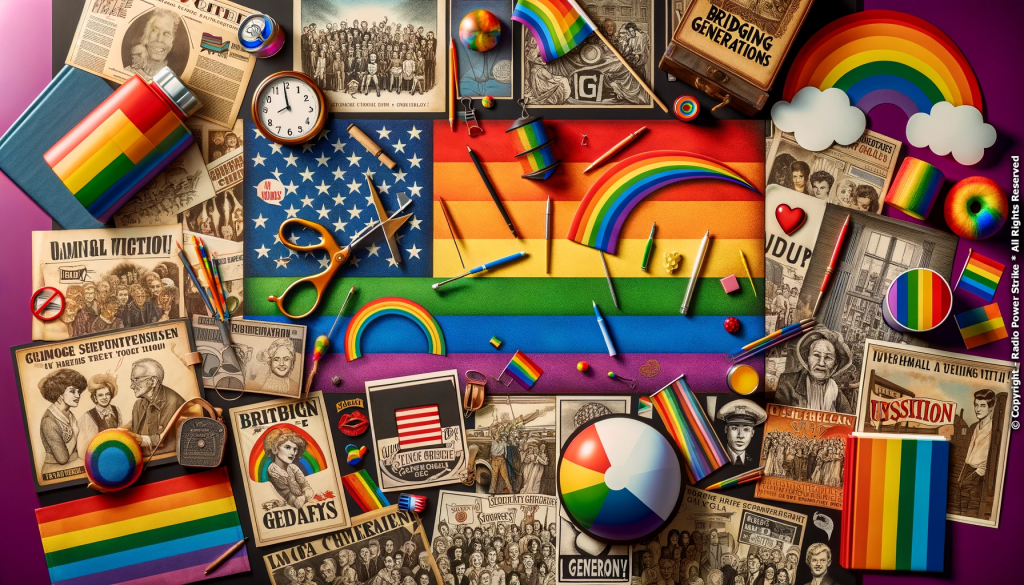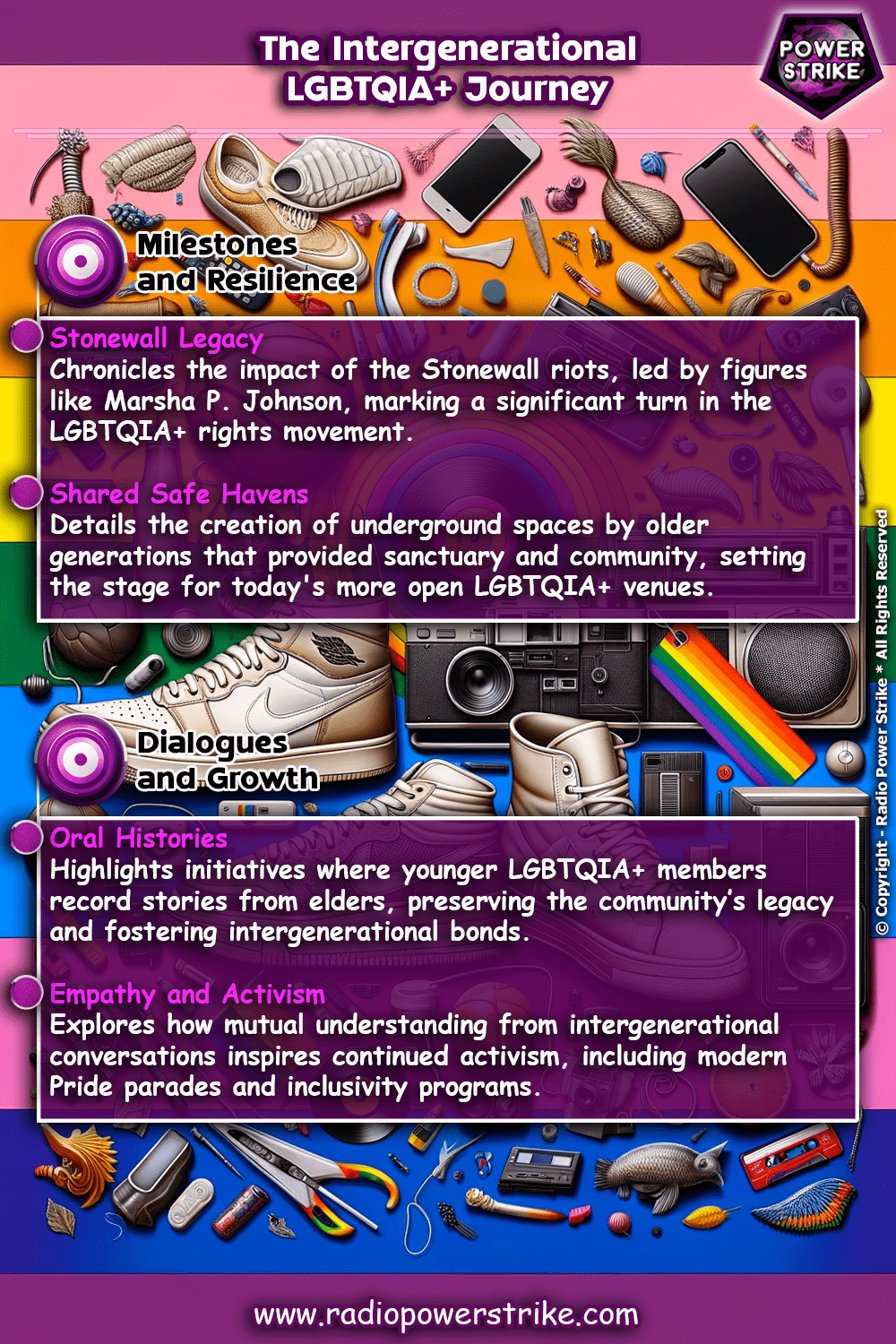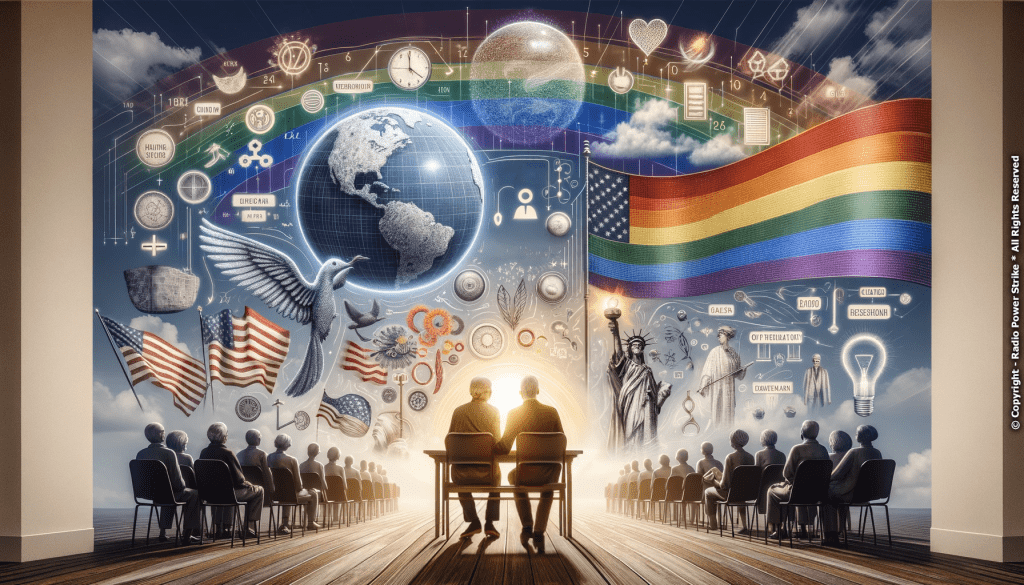Bridging Generations: Conversations Between Older and Younger LGBTQIA+
Connecting the Dots: Sharing Experiences Across Different LGBTQIA+ Eras

The LGBTQIA+ community has experienced significant change over the decades. Each generation faced its unique challenges, made its own contributions, and cultivated its understanding of identity. Conversations between older and younger LGBTQIA+ individuals provide an opportunity to bridge these generational differences, offering insights, shared experiences, and a continuum of the community’s history.
The Rich Tapestry of Past Struggles
The older generation of the LGBTQIA+ community has witnessed and been a part of monumental shifts in societal attitudes. They navigated an era where discrimination was rampant, and acceptance was scarce. For instance, the Stonewall riots of 1969, led by activists like Marsha P. Johnson and Sylvia Rivera, marked a significant turning point for LGBTQIA+ rights.
Members from this era often share tales of resilience, of underground bars, and secret gatherings, where they found solace and community. Their stories serve as poignant reminders of the battles fought and won, shaping the freedoms enjoyed by subsequent generations.
While today’s world is more accepting, the older generation’s narratives underscore the importance of vigilance and activism to ensure the continued progress of LGBTQIA+ rights and acceptance.
Intergenerational Dialogue and its Significance
Conversations between older and younger LGBTQIA+ individuals can be transformative. The younger generation, for instance, brings fresh perspectives, shedding light on evolving identities, modern challenges, and the nuances of today’s LGBTQIA+ landscape. A young non-binary individual might share their journey of self-discovery, resonating with an older transgender individual’s experience from decades ago.
Through these dialogues, both generations can find common ground. Initiatives like the LGBTQIA+ oral history projects, where younger members interview their elders, not only preserve vital community stories but also foster understanding and strengthen intergenerational ties.
The mutual respect and empathy stemming from these conversations ensure that the community remains united, drawing strength from its diverse experiences and shared history.

Embracing a Unified Future
Despite the generational gap, the core of the LGBTQIA+ experience remains rooted in the quest for understanding, acceptance, and love. Young activists, inspired by the struggles of the past, are leading initiatives like Pride parades and LGBTQIA+ inclusivity programs in schools, ensuring a brighter future for all.
Sharing stories across generations also ensures that history is not forgotten. By celebrating achievements, acknowledging past hardships, and looking forward to the possibilities of the future, the community can envision a unified and inclusive world.
Whether it’s through formal initiatives or casual conversations, bridging the generational divide enriches the LGBTQIA+ narrative, ensuring that every voice, old or new, is heard and valued.
The vibrant tapestry of the LGBTQIA+ community is woven from the threads of countless individual stories. By fostering conversations between its older and younger members, the community ensures that its rich history is honored, its present challenges are addressed, and its future is envisioned with hope and unity. The journey of understanding and acceptance is a continuous one, made richer by the shared experiences across generations.


Comments are closed, but trackbacks and pingbacks are open.